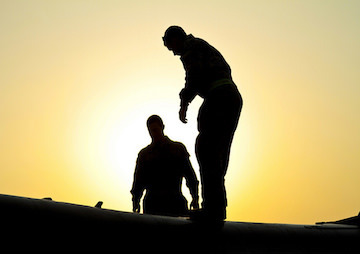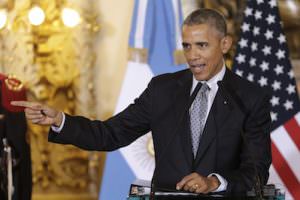NATO Will Return to Iraq
Four years after leaving, the U.S.-led western military alliance is planning to renew operations in the country by training officers to help fight Islamic State. Matt Hecht / CC BY 2.0
Matt Hecht / CC BY 2.0
Four years after leaving Iraq, NATO is planning to renew operations in the country by training officers to help fight Islamic State.
The Guardian reports that the U.S.-led alliance is also working on several other proposals in response to requests by the Iraqi government.
Nato started training in Iraq in 2004, a year after the invasion, with the declared aim of creating an “effective force”, and left in 2011. Despite training 5,000 officers, running at least 2,000 courses and spending millions on teaching officers both in the country and in Nato countries, the Iraqi army collapsed when confronted by Isis in Mosul last year and Ramadi this year. …
Defence ministers are scheduled to meet at Nato headquarters in Brussels on Wednesday and Thursday, mainly to discuss progress on a new rapid-reaction force that can be deployed on the alliance’s eastern front against Russia or in the south and south-east in conflicts such as Libya, Syria or Iraq.
Stepping up pressure on Russia, the US defence secretary, Ash Carter, announced on Tuesday the locations for 250 US tanks, armoured vehicles and artillery by the end of the year: Poland, Romania, Bulgaria, Estonia, Latvia and Lithuania.
The equipment will remain in place for use by troops sent for exercises to these countries on a rotational basis. The US ambassador to Nato, Douglas Lute, described it as being like “a rental car-type agreement for training equipment”. The positioning of permanent equipment right up against the Russian border could act as a further irritant to President Vladimir Putin.
Read more here.
— Posted by Alexander Reed Kelly.
Your support matters…Independent journalism is under threat and overshadowed by heavily funded mainstream media.
You can help level the playing field. Become a member.
Your tax-deductible contribution keeps us digging beneath the headlines to give you thought-provoking, investigative reporting and analysis that unearths what's really happening- without compromise.
Give today to support our courageous, independent journalists.





You need to be a supporter to comment.
There are currently no responses to this article.
Be the first to respond.